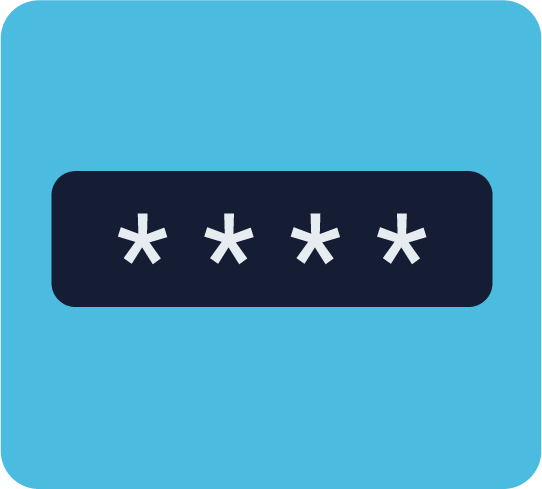
Many businesses rely on employees to create and manage their own passwords, which can lead to weak, reused, or forgotten passwords. Password fatigue is real. With so many online services requiring logins, it’s tempting for users to cut corners and reuse passwords or use easy-to-guess combinations. Worse still, passwords are often stored in unsecured ways—like in spreadsheets or sticky notes— or even left with other people to remember on their behalf – leaving your business open to potential cyberattacks.
Weak or compromised passwords are one of the leading causes of security breaches, with millions of records stolen every year through password-related vulnerabilities. Businesses of all sizes are targeted, and an attacker gaining access to just one critical account could result in catastrophic data loss, system shutdowns, or severe financial loss. And here’s the scary part—you might not even know when someone has compromised a password. Someone could be logging into an account you use daily, and unless they cause noticeable disruption, they could go undetected for months.
To make things worse, compromised accounts aren’t always spotted by standard security measures. This is why adding MFA alongside a password manager is essential. MFA requires an additional verification step, such as a code sent to your phone, reducing the risk even if a password is stolen.
Using that same password you used for a service like “myfitnesspal” which you don’t use anymore, and got hacked without you knowing.
Reusing passwords across different accounts, leading to all accounts being at risk if just one is breached.
Using simple, memorable passwords—often easy for hackers to guess or crack.
Writing down passwords in notebooks or sticky notes that can be easily lost or stolen.
Storing passwords in spreadsheets or unsecured documents that can be hacked or accessed by unauthorised users.
Relying on memory, leading to frequent password resets and account lockouts when forgotten.
Sharing passwords via insecure methods, like email or messaging apps, increasing the risk of interception.
Skipping password updates, leaving accounts vulnerable to breaches from outdated, compromised passwords.
Unauthorised access to sensitive accounts, allowing attackers to steal valuable information or commit fraud.
Identity theft, where attackers use compromised accounts to impersonate you or your employees.
Data breaches exposing customer information or business-critical data, leading to regulatory fines.
Financial loss, either through fraudulent transactions or ransom demands.
Reputational damage, as customers lose trust in your ability to protect their data.
Operational disruptions as accounts are locked or disabled, halting your business processes.
Ongoing access to your systems, with attackers using compromised accounts for months without detection, making it difficult to pinpoint when or how the breach occurred.
At Optimus, we understand that password management doesn’t have to be a headache. Our password management solutions simplify the process by securely storing credentials, auto-generating strong passwords, and ensuring your team only needs to remember one master password. Plus, we strongly recommend pairing your password manager with multi-factor authentication for added security. Don’t let weak passwords or hidden threats jeopardise your business—reach out today to see how we can strengthen your security posture and keep your operations safe.
Talk to our team about your needs
Strategy
Cybersecurity
Infrastructure
Support
Case studies
Insights
Strategy review
About us
Our team
Our values
Get in touch
Schedule a call
Find a local office
Copyright © 2024 Optimus Systems Limited. All Rights Reserved.
Privacy Policy
Company Terms